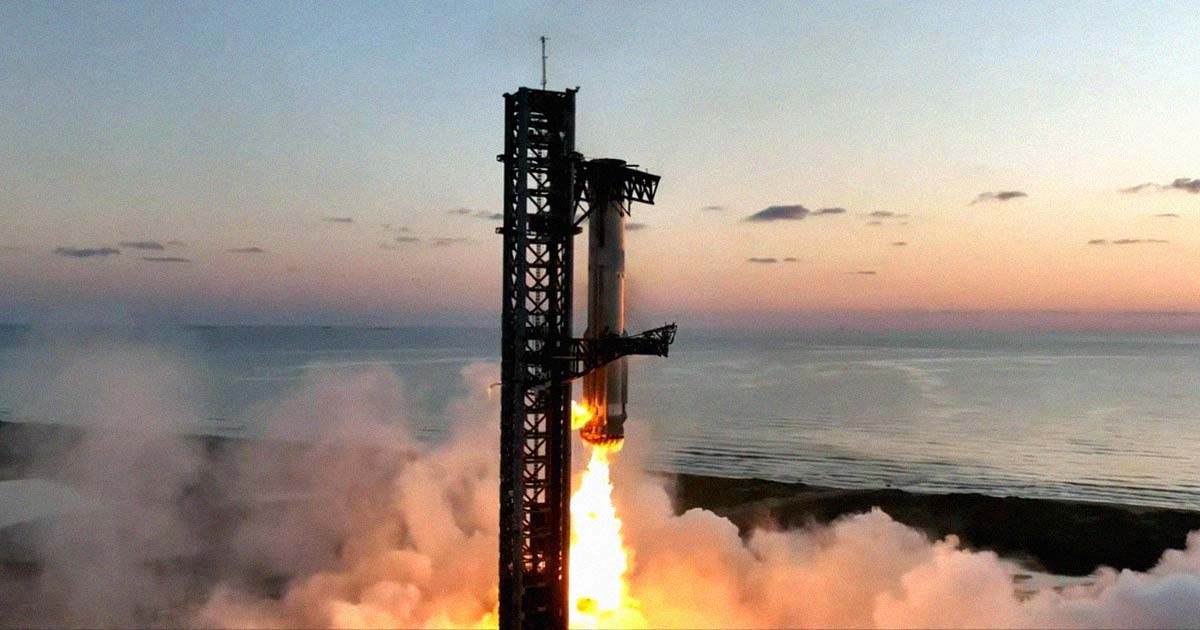
During the company's fifth Starship test flight, SpaceX successfully caught the spacecraft's Super Heavy booster using its "Mechazilla" tower, an unbelievable feat of engineering that required an immense amount of precision and experience.

Remarkably, SpaceX has launched a Falcon 9 rocket almost every day over the last week.

Elon Musk's brain-chip startup Neuralink livestreamed its first patient implanted with a chip using his mind to play online chess. The implant seeks to enable people to control a computer cursor or keyboard using only their thoughts.

SpaceX's Starship rocket, designed to eventually send astronauts to the moon and beyond, completed nearly an entire test flight through space on its third try on March 14, getting farther than ever before, but disintegrated on its return to Earth.

Billionaire technologist Elon Musk announced this week that his company Neuralink has implanted its brain-computer interface into a human for the first time.

Neuralink said on Thursday that it received clearance from the US Food and Drug Administration (FDA) for the first human clinical study of implants which are intended to let the brain interface directly with computers.

“With a test like this, success comes from what we learn, and today’s test will help us improve Starship’s reliability as SpaceX seeks to make life multi-planetary,” SpaceX said in a tweet.

More than 1,000 artificial intelligence experts have joined a call for an immediate pause on the creation of “giant” AIs for at least six months, so the capabilities and dangers of systems such as GPT-4 can be properly studied and mitigated.

Four people returned to Earth from a three-day extraterrestrial excursion aboard a SpaceX Crew Dragon capsule on Saturday evening. It was the first-ever flight to Earth's orbit flown entirely by tourists.

Thursday evening SpaceX's Falcon 9 rocket was successfully launched for the 50th time. It has only been five years and a few days since they landed their first one.

To date, SpaceX has launched over 800 Starlink satellites. Now SpaceX has invited participants to take part in a public beta test but on one condition - participants must acknowledge that Mars is a “free planet.”

After an impressive night launch Sunday, the Crew Dragon Resilience docks with the International Space Station for a long-term stay. This is a new era of operational flights to the ISS from the Florida coast.

A SpaceX Falcon 9 rocket fired 60 more Starlink internet relay satellites into orbit Sunday from the Kennedy Space Center with another set awaiting launch Wednesday from the nearby Cape Canaveral Air Force Station.

Roughly 1,000 electrodes will be inserted into the targeted collection of neurons, and those will connect to an implant above the surface of the brain. Musk said that it plans to do initial testing with tetraplegics.

The specific objective of Neuralink is to develop ultra-high bandwidth brain-machine interfaces to connect humans and computers. Practically, this materializes as a chip that is implanted into the brain.